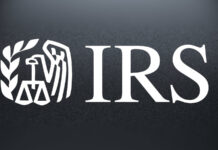
During March, for only the second time in history, both houses of Congress approved a resolution under the Congressional Review Act disapproving the controversial “quickie” or “ambush” union election rule. The Senate adopted the disapproval resolution of the NLRB action on March 4 by vote of 53-46, and the House passed an additional measure on March 19 by a vote of 232-186. On March 31, President Barack Obama vetoed the joint congressional resolution. The Senate vote is 14 votes shy of the total needed to override the president’s veto. Therefore, the NLRB rule went into effect as scheduled on April 14. While there are two lawsuits pending to challenge the legality of the new NLRB rule, in neither case has the court scheduled a hearing or made a ruling. In any event, blocking the rule through litigation is probably a long shot.
Regarding the Senate resolution, Sen. Lamar Alexander, chairman of the Senate Labor Committee, said in a statement after the Senate’s vote that the NLRB rule changes would “allow a union to force an election before an employer has a chance to figure out what’s going on.” On average, it currently takes about 38 days after a union petition is filed with the NLRB for a union election to take place. No one knows, not even the NLRB, how soon elections will be held in the future, but estimates vary between two and four weeks after the filing of the petition.
Implementation of the quickie election rule, together with the recent NLRB ruling in Purple Communications Inc., creates new issues for employers facing an election. The new election rules, among other things, require the employer to provide the union with employees’ personal e-mail addresses, to the extent the employer has them. This will provide the union with a quicker and cheaper communication channel to the employee voters.
In Purple Communications, the NLRB adopted a presumption that employees who have been given access to the employer’s e-mail system are entitled to use the system to engage in statutorily protected discussions about the terms and conditions of employment while on non-working time. This provides employees with a new form of protected communication during an organizing campaign (and at other times).
In short, the NLRB has made it easier for unions to communicate with employees – at least after an election petition has been filed – and has made it easier for employees to communicate with each other by using the employer’s e-mail system.
Editor’s Note: In light of the quickie election rules, employers should make a considered decision of whether to obtain and possess employees’ personal e-mail addresses. In some organizations, there may be no strong business reason to have such information. If that is the case, there is now good reason not to possess it. In light of the Purple Communications decision, employers should review their e-mail policies and practices to ensure they are in order, and should do so in advance of any organizing activity to preclude any claim that the employer modified its rules and practices in response to such activity.
Jeffrey G. Jones is a regional managing member for Wimberly Lawson Wright Daves & Jones PLLC. He can be reached at jjones@wimberlylawson.com.







